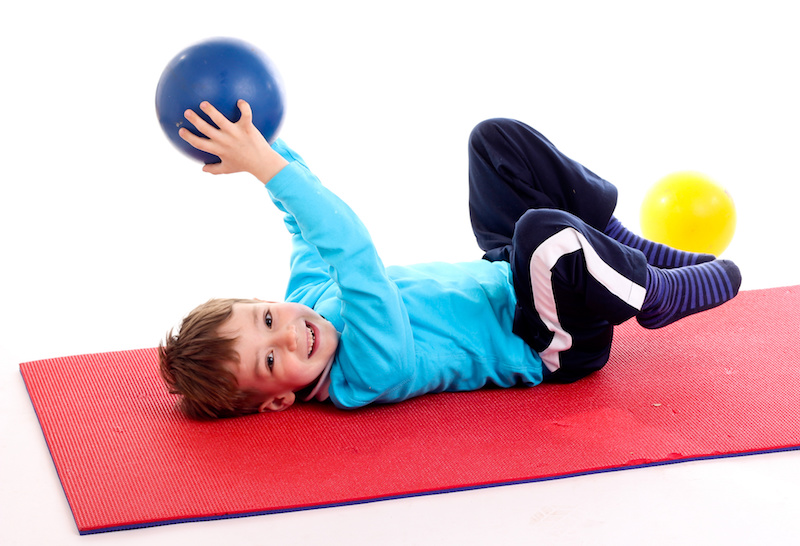Childhood Constipation: 10 Natural Health Solutions
Mindd Foundation

Childhood constipation is a very frequent condition. However, the good news is that there are lots of practical ways to help your child develop healthy toilet habits.
-
Dietary Changes Can Relieve Childhood Constipation
One useful step in helping to relieve childhood constipation is ensuring the diet is rich in high fiber, nutrient-dense foods. Aim to have children eat more:
- Kiwifruit
- Blackberries
- Leafy green vegetables
- Beetroot
- Oat Bran
- Ground flaxseeds (at 1-2 tsp per day)
Ideally, they should be eating some of these foods most days of the week to help return their bowel movements to normality.
-
Check Hydration is Adequate
Ensure your child is drinking the equivalent of 30ml of water per kilogram of body weight per day. If they sweat with play or exercise, increase their water intake by adding an extra glass or two to their daily intake.
-
Movement and Exercise gets the Bowels Moving
Movement helps improve peristalsis; i.e., motility of the bowel. Children can accelerate the transit time by regular physical activity.
Send them outside to play, go to the park, put them on their bike – whatever you can do to get them moving may also help get their bowels moving. And hey, that’s good for parents too. It might make the bedtime battle less of a struggle.
-
Probiotics Reset Bowel Bacteria
Using probiotics to overcome childhood constipation can be useful. However, a word of warning here – getting the right strain of probiotic is crucial. Speak to your natural health practitioner about this, and look for probiotics that contain the following strains of bacteria:
- Bifidobacterium animalis (DN-173 010)
- Bifidobacterium lactis (HN001)
- Bifidobacterium lactis (Bb12)
- Escherichia coli (1917)
-
Prebiotics Help Beneficial Bacteria
Lactulose which is sold at the chemist as a laxative is a prebiotic fiber that helps feed and grow beneficial bacteria species of Lactobacilli and Bifidobacteria.
Start with a low dose – e.g., 1/4 tsp per day – and build up to a dose that feels comfortable for your child. Usually, 5ml to 15ml per day can assist in constipation relief. A particular note here: some kids will get more windy and bloated when using prebiotics. If they feel very uncomfortable, then drop the dose to what they can tolerate.
Galactooligosaccharide powder is another prebiotic that has been found to help with the relief of constipation too.
-
Massage for Movement
Assisting the bowel with some manual work can also help get things moving. Try massaging their tummies (abdomen) in a clockwise direction on a daily basis.
-
Iberogast – Bitter Herbs for Digestive Balance
If your child is also belching, they may have vagal tone imbalance, meaning the nervous system signaling to the digestive tract could be out of balance.
Consuming bitter herbs or foods can help stimulate the vagal nerve by engaging the bitter receptors on the tongue. Iberogast is a German herbal formula contains bitter herbs that exert this effect.
Iberogast is also great to use for many other reasons, including its ability to stimulate serotonin receptors in the bowel to regulate motility. It’s also a low dose formula that is safe to use with children. Please speak to your health professional or pharmacist about the appropriate dose for your child.
-
Gentle Laxatives can Get Things Moving
In some cases, the use of a mild laxative that is not abrasive to the bowel wall can be the answer. A cup of licorice tea or a small amount of licorice eaten can help things get moving.
Using a combination of slippery elm powder, oat bran, lactulose, and licorice root mixed into apple juice and in divided doses over the course of a day over a three-week period has also been found to help reduce constipation.
Please note: excessive licorice can cause an increase in blood pressure.
-
Retraining the Bowel
In chronic childhood constipation cases where there is no longer an urge to move bowels – sit them on the toilet at the same time each morning to reset signaling.
Talk to the child who is repressing an urge to move their bowels. Discussing the importance of listening to your body’s message to go to the toilet is also helpful.
-
Check for Other Factors
Finally, a couple of things to consider include the possibility the child could be faecally impacted. Despite moving their bowels daily, some kids may not be entirely clearing out their large intestines and this can cause fecal impaction.
The other thing that could be happening if you have a child with incontinence issues or night time bedwetting is that they are constipated, and that’s placing pressure on the bladder.
Speak to your doctor or health practitioner about exploring these possibilities if you are concerned.
Also, it is essential to understand the underlying cause of your child’s constipation so see our article on Causes of kids’ constipation here
Susan Hunter, B.HSc (Naturopathy), BA (Psych)
 Susan Hunter is a clinical naturopath practicing in the bayside suburb of Hampton in Melbourne. Susan’s particular interest area in clinical practice is kids, digestive and mental health. She has contributed chapters for textbooks, written research papers for academic journals and been published in the national mainstream media.
Susan Hunter is a clinical naturopath practicing in the bayside suburb of Hampton in Melbourne. Susan’s particular interest area in clinical practice is kids, digestive and mental health. She has contributed chapters for textbooks, written research papers for academic journals and been published in the national mainstream media.
www.healthfulclinic.com.au
REFERENCES
Mearin, F., Ciriza, C., Mínguez, M., Rey, E., Mascort, J.J., Peña, E., Cañones, P. and Júdez, J., 2017. Irritable bowel syndrome with constipation and functional constipation in adults: Treatment (Part 2 of 2). Semergen.
Mearin, F., Ciriza, C., Mínguez, M., Rey, E., Mascort, J.J., Peña, E., Cañones, P. and Júdez, J., 2017. Irritable bowel syndrome with constipation and functional constipation in adults: Treatment (Part 2 of 2). Semergen.
Hawrelak, J.A. and Myers, S.P., 2010. Effects of two natural medicine formulations on irritable bowel syndrome symptoms: a pilot study. The Journal of Alternative and Complementary Medicine, 16(10), pp.1065-1071.
Magro, D.O., de Oliveira, L.M.R., Bernasconi, I., de Souza Ruela, M., Credidio, L., Barcelos, I.K., Leal, R.F., Ayrizono, M.D.L.S., Fagundes, J.J., de B Teixeira, L. and Ouwehand, A.C., 2014. Effect of yogurt containing polydextrose, Lactobacillus acidophilus NCFM and Bifidobacterium lactis HN019: a randomized, double-blind, controlled study in chronic constipation. Nutrition journal, 13(1), p.75.
Dimidi, E., Christodoulides, S., Fragkos, K.C., Scott, S.M. and Whelan, K., 2014. The effect of probiotics on functional constipation in adults: a systematic review and meta-analysis of randomized controlled trials. The American journal of clinical nutrition, 100(4), pp.1075-1084.
Simmen, U., Kelber, O., Okpanyi, S.N., Jaeggi, R., Bueter, B. and Weiser, D., 2006. Binding of STW 5 (Iberogast®) and its components to intestinal 5-HT, muscarinic M 3, and opioid receptors. Phytomedicine, 13, pp.51-55.




